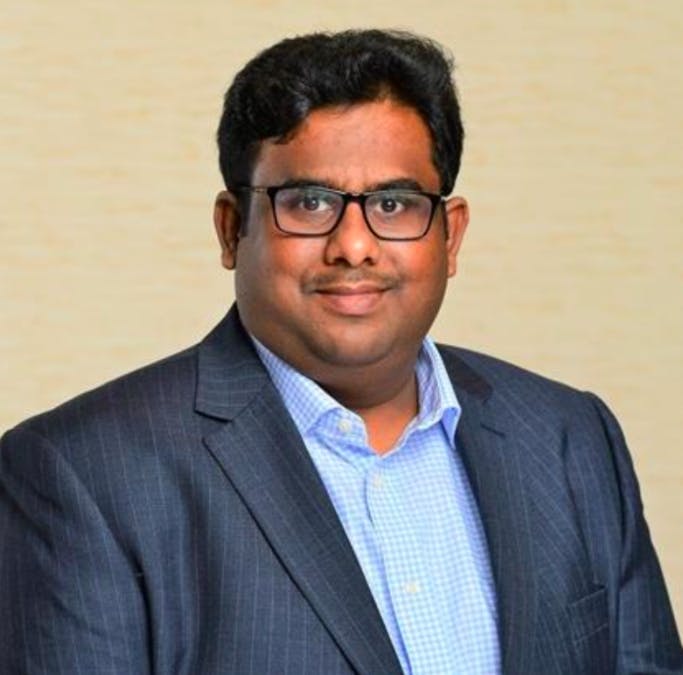By: Georgette Virgo
Kranthi Kumar Godavarthi, a seasoned data architect and HealthCare Data Specialist, has dedicated over a decade to transforming how data is managed and utilized in the HealthCare industry. He holds a Bachelor of Technology degree from Gokaraju Rangaraju Institute of Engineering and Technology (GRIET) and a postgraduate diploma in artificial intelligence (AI) and machine learning from the University of Texas at Austin's McCombs School of Business.
In his 14 years of experience, Godavarthi developed expertise in the Software Development Life Cycle and skills in business analysis, DevOps, cloud architecture, data engineering, and testing. One of his most notable achievements is creating a multi-service cloud platform for a primary health insurance provider, integrating predictive analytics and multiple functionalities to enhance patient care and operational efficiency.
Recognizing the relevance of such platforms to keep up with the demands of modern healthcare, Godavarthi shares his best practices, offering insights into the strategies and methodologies that drive the successful implementation of the platform.
Understanding Multi-Service Cloud Platform
A multi-service cloud platform is an integrated solution that combines various cloud services—such as Software as a Service (SaaS), Infrastructure as a Service (IaaS), and Platform as a Service (PaaS)—to deliver functionalities tailored to organizational needs. These platforms enable businesses to utilize specialized services from multiple cloud providers, optimizing performance while avoiding vendor lock-in.
In healthcare, such platforms are particularly valuable for managing large volumes of patient data, ensuring compliance with regulations like the Health Insurance Portability and Accountability Act (HIPAA), and facilitating real-time collaboration among stakeholders.
Godavarthi’s multi-service cloud platform for health insurance providers integrates cloud-based features to improve the overall efficiency and standards of healthcare delivery. For instance, the cloud-based call center software efficiently manages patient inquiries and support requests. Such systems can integrate electronic health records (EHRs) to provide agents with real-time access to patient information, enabling them to address queries more effectively.
Additionally, it can also analyze healthcare costs to identify areas for optimization. This helps insurers and healthcare providers understand the financial implications of different treatments and make informed decisions about resource allocation.
Behind Developing Multi-Service Cloud Platforms
Godavarthi’s multi-service cloud platforms stem from adhering to key best practices that ensure efficiency, security, and collaboration throughout the development process. It combined both technical, security, and stakeholder considerations to maintain accuracy and maximize impact.
Vendor Evaluation and Data Analysis
According to Godavarthi, selecting the right vendors is crucial in building a reliable multi-service cloud platform. With this, he prioritizes vendors with proven experience in healthcare technology, robust customer support systems, and scalable solutions that can adapt to evolving organizational needs. He also engages extensively with business users and subject matter experts (SMEs) to gather requirements that align with operational goals.
Data analysis also plays an equally critical role in the development process. Godavarthi employs advanced tools like SQL, Python, and Shell Scripts to inspect, cleanse, transform, and model data effectively. This ensures that the platform can handle large datasets efficiently while maintaining data integrity—a vital factor in healthcare applications where accuracy can directly impact patient outcomes.
Security Measures and Governance
Maintaining security is paramount when dealing with sensitive healthcare data. Godavarthi’s approach includes implementing stringent security protocols that comply with regulatory standards such as HIPAA and HITRUST. He uses encryption technologies and multi-factor authentication systems to safeguard patient information against cyber threats.
In addition to technical measures, Godavarthi emphasizes the importance of governance frameworks that oversee data access policies and standards. His work often involves collaborating with cross-functional teams to create custom-built objects using technologies like Python and IBM InfoSphere Optim to maintain robust data governance processes.
Stakeholder Collaboration and Leadership
Behind any innovation is a team that works together to build, analyze, test, and launch. Godavarthi’s leadership style highlights the value of collaboration in achieving project success. He works closely with stakeholders across various departments—whether co-located or globally distributed—to ensure alignment on project goals and milestones.
Godavarthi maintains a culture of trust and open communication within his teams. He believes that integrating diverse perspectives into decision-making processes develops innovative and practical solutions, allowing them to tackle technical issues while maintaining focus on broader goals.
Godavarthi shares, “Technology is only part of the equation; the people behind it drive success. Effective collaboration ensures that every stakeholder contributes expertise to achieving shared objectives.”
Not Just Healthcare: Solutions That Work Anywhere
While healthcare remains his primary focus, Godavarthi has equally applied his best practices to other industries. For a U.S. life sciences retailer, he developed an analytics product that evaluates the impact of social media on sales. This solution gave the retailer a deeper understanding of customer behavior, enabling data-driven marketing strategies by analyzing data from platforms like Facebook and YouTube.
Godavarthi states, “The possibilities are endless when discussing cloud computing. From predictive analytics to personalized medicine, we’re only at the beginning of what these technologies can achieve for healthcare and other industries.”
As the cloud continues to transform industries, experts like Kranthi Kumar Godavarthi will play a pivotal role in reinforcing the real-world impact of these technologies. His development and adherence to best practices provide valuable lessons for organizations and professionals seeking to modernize their operations and enhance how their customers use eir services.


